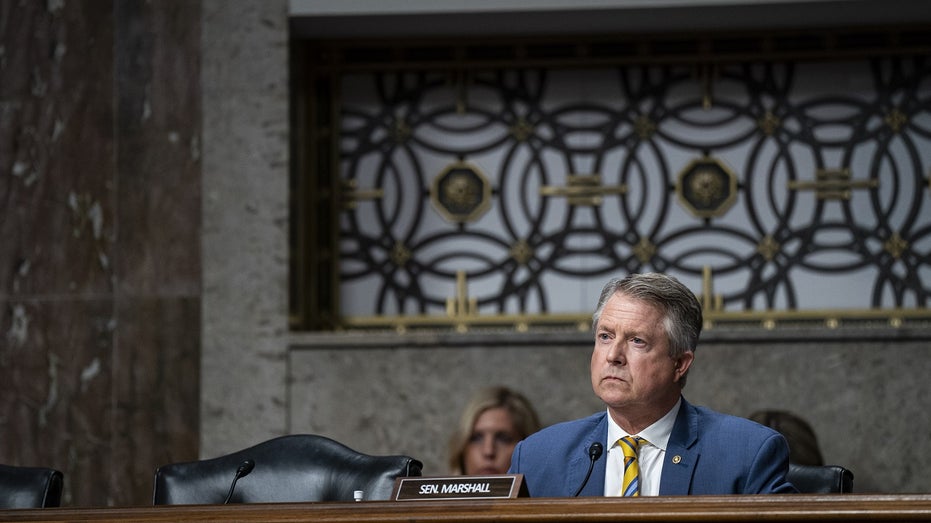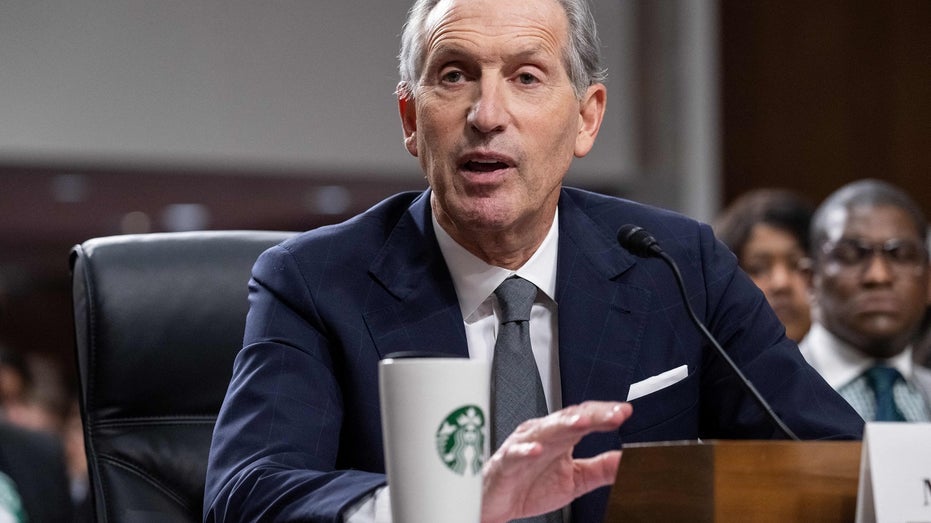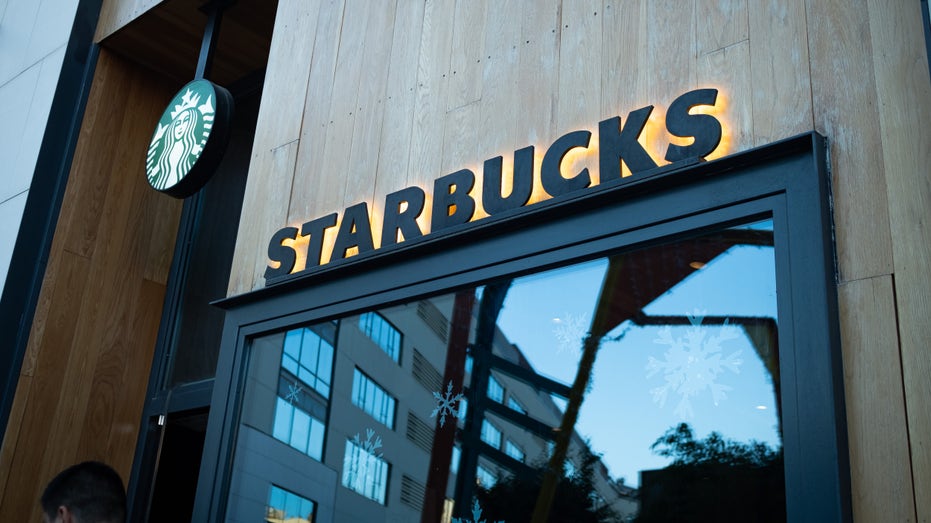

Former Starbucks chief executive Howard Schultz told lawmakers Wednesday that the coffee giant was forced to shut down several money-making stores in recent months due to concerns for the safety of their employees in many cities, pointing to soaring crime.
Schultz was on Capitol Hill testifying before the Senate Health, Education, Labor & Pensions (HELP) Committee at a hearing regarding Starbucks' labor practices amid an ongoing unionization push, when the questioning shifted to address the reasoning behind the coffee giant's decision to shutter several locations last year.

Senator Roger Marshall, a Republican from Kansas, during a Senate Health, Education, Labor, and Pensions Committee hearing in Washington, DC, US, on Wednesday, March 29, 2023. (Al Drago/Bloomberg via Getty Images / Getty Images)
Kansas Republican Sen. Roger Marshall noted that Starbucks announced the closure of 16 stores last summer in Democrat-run cities, pointing to a spike in crime and drug use among customers and nonpaying patrons that made employees fear for their own personal safety.
In a video leaked shortly after the announcement, Schultz placed blame on politicians at all levels for the store closures, saying, "In my view, at the local, state and federal level, these governments across the country and leaders, mayors and governors and city councils, have abdicated their responsibility in fighting crime and addressing mental illness."
Marshall asked Schulz during the hearing whether he still believes "the White House needs to focus on restoring law and order and relaying a message to this country of respect for the brave men and women in law enforcement."

Former Starbucks CEO Howard Schultz testifies about the company's labor and union practices during a Senate Committee on Health, Education, Labor and Pensions hearing on Capitol Hill in Washington, DC, March 29, 2023. (SAUL LOEB/AFP via Getty Images / Getty Images)
"We do, in fact, have a significant issue of safety in urban cities around America, and Starbucks has closed many, many stores that were profitable as a result of the fact that our own people do not feel safe working in the stores," Schultz replied.
"And we have a situation of homelessness, drugs, mental illness, and as a result of that, many of the societal issues that we're facing today are difficult for Starbucks to address because we don't have the power or the responsibility to address these things, as you've described," he added.
Starbucks Workers United, the labor group seeking to organize Starbucks locations nationwide, has accused the coffee company of closing stores that voted to unionize, but Starbucks insists none of its store closures were due to union activities.

Starbucks closed more than a dozen locations last year, citing safety concerns for employees due to rising crime. (Davide Bonaldo/SOPA Images/LightRocket via Getty Images / Getty Images)
"Opening and closing stores is part of our business operations," a spokesperson for the company said following the announcement of the closures last year. "This is really rooted in safe and welcoming stores."
U.S. labor law doesn’t prevent Starbucks from shutting down stores for business reasons. But companies cannot close a location — whether it is unionized or not — in retaliation against labor organizers.
FOX Business' Sarah Rumpf contributed to this report.
